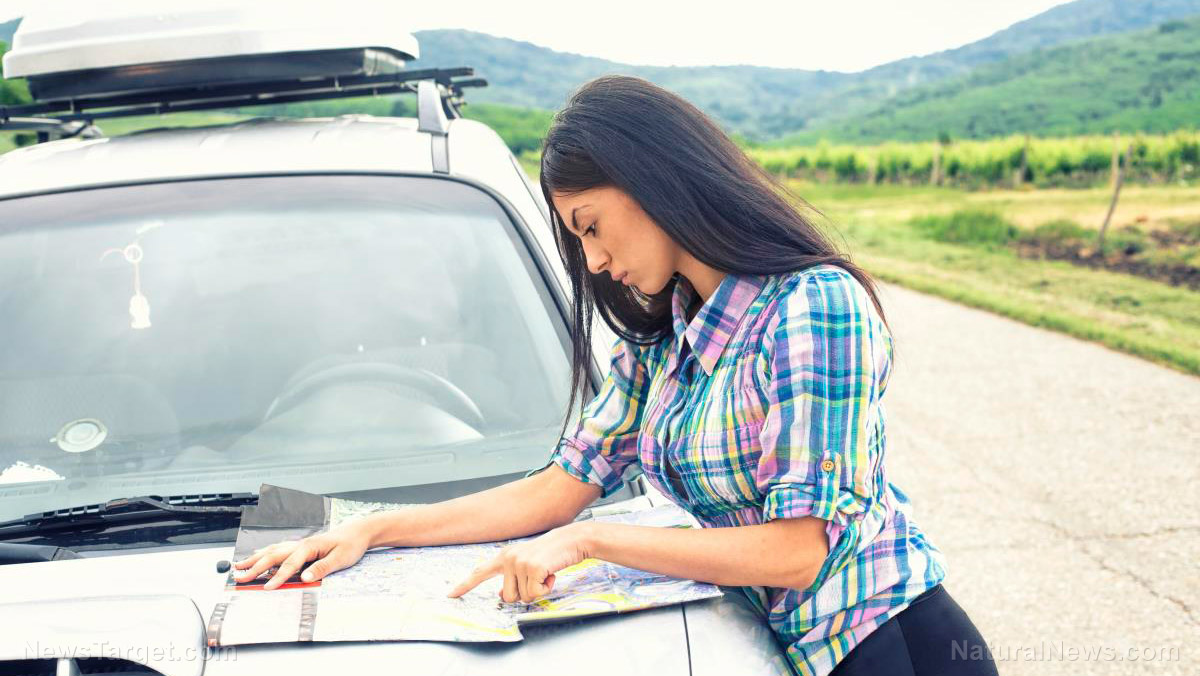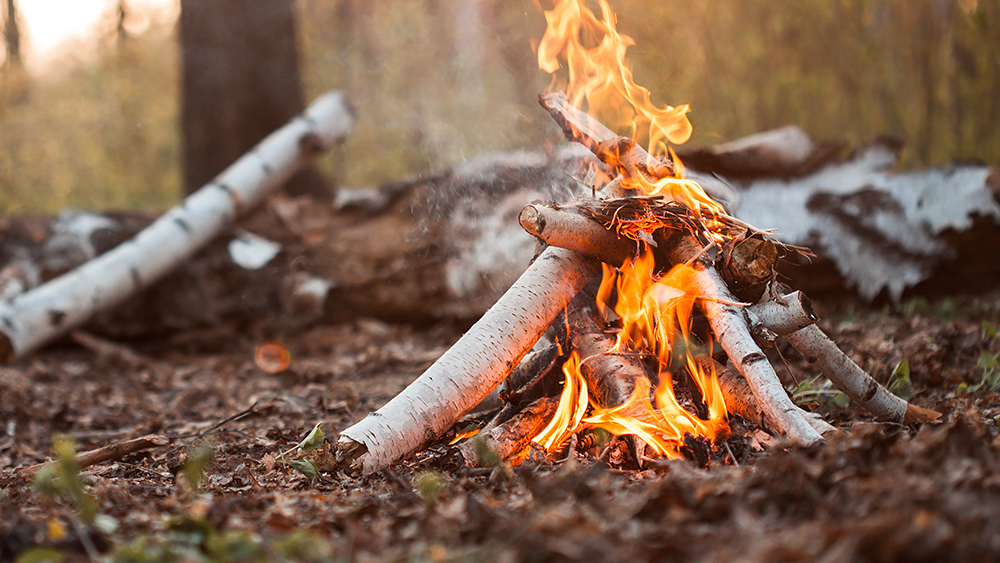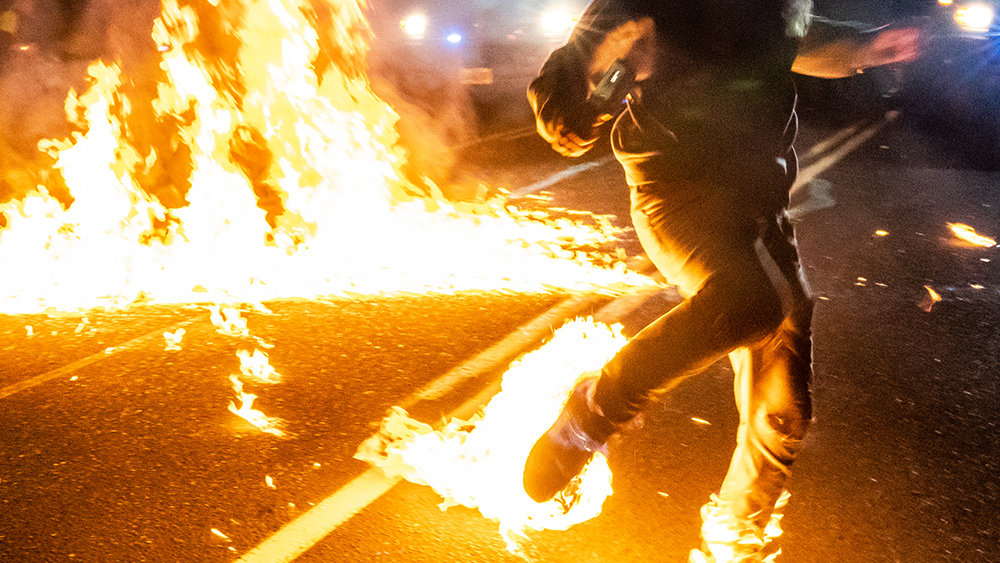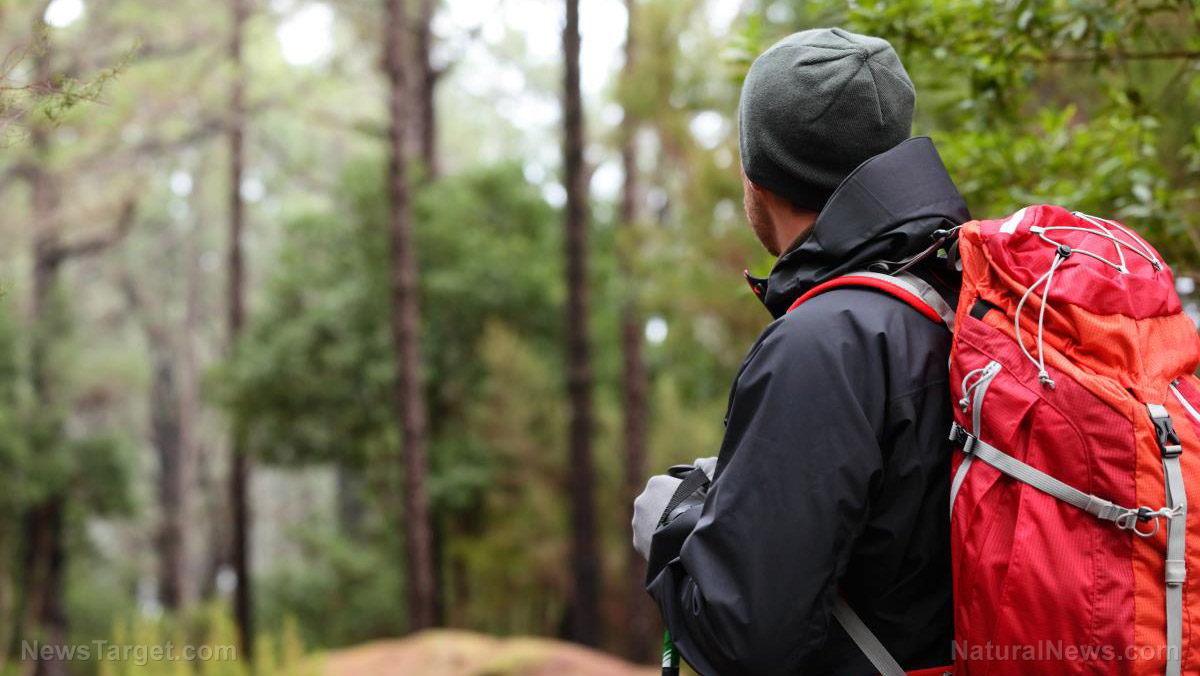
Long-distance travel is far from ideal in an SHTF scenario, but you never know how a situation could play out. It is best to plan for these trips ahead of time.
Here are some tips on how to safely cover long distances:
Map out your route
Plan out your route before setting out and carefully consider the roads (or backroads) you will take to reach your destination. Include alternative routes in your plan in case your main choice becomes inaccessible. While you are likely to plan the fastest course, you have to consider your safety, fuel efficiency and the availability of supplies.
Keep your vehicle's average mileage in mind when you plan your route and decide how much spare fuel you need to take. You will also need water for your journey. If you can't have all these with you in your vehicle, include stops where you can get your gasoline and water supplies in your route planning.
Blend in the background
It is important not to stand out in most cases to avoid becoming a target. Carrying weapons and supplies could make you look suspicious and attract the attention of authorities. This could lead to further delays and add more complications to your journey.
To avoid unwanted attention, carry only the supplies you need and conceal them as much as possible. If you have family traveling with you, make it look like you're going on a regular trip or a vacation. (Related: Bug out basics: How far can you walk while carrying a bug-out bag (BOB)?)
Map out camping spots
If you're planning on traveling long-distance, you may not be able to complete your journey in one day. So while it is tempting to drive through the night, this is not advisable. Not only is it dangerous to drive while sleep-deprived, it can also attract attention at night.
If you can't make your trip in a single day, plan out camping spots in advance and make sure to get to them before it gets dark so that you can navigate and set up camp safely. To avoid any hostility with passers-by, it is a good idea to plan these spots away from main roads or busy areas.
As much as possible, avoid making a campfire. The smoke will mark your position and could lead attackers to you. Make sure to have ready-t0-eat food and have extra layers of clothing to protect yourself from the cold.
Hide supplies strategically
When making long-distance trips, you should consider caching. This practice involves placing hidden supplies of food, medical equipment, ammunition and other materials in strategic locations. These caches will allow you to minimize what you carry and help you maintain a low profile.
Supply caching is especially effective when you find yourself in a situation where you could lose everything on hand. These reserves along your pre-planned route and backups could literally save your life. Try to hide them as much as possible and use combination locks, so that you can access them without a key. (Related: How to travel to a safe location during a "Without Rule of Law" scenario.)
Watch the weather
Most people forget to consider the weather when traveling. Nature can be dangerous, even more so than humans, when traveling. Snow, rain, ice and high winds could make driving or trekking unsafe. While it may be more difficult to check the weather through apps or the TV in an SHTF scenario, there are helpful resources that you can check, such as the Farmer's Almanac.
Checking the sky or watching animal behavior can also help predict incoming storms or poor road visibility.
Also remember to travel only when it is safe. Traveling safely is challenging in an SHTF scenario, and very few people will manage to stay undetected. If you live in a densely-populated area, consider creating a good escape plan according to your needs and the environment. You never know when you will need to evacuate, and it is a lot better to be safe than sorry.
More related stories:
Prepping on the road: A beginner's guide to living in a travel trailer full-time.
Save and stockpile: Preparing for an economic collapse.
Prepper must-haves: How to pack a "get me home" bag.
Making your escape: 5 Factors to consider when developing an emergency bug-out plan.
An emergency supply checklist for beginner preppers.
Watch the video below to learn more about the items you need to invest in for an SHTF scenario.
This video is from the Liberty Thoughts channel on Brighteon.com.
Sources include:
Please contact us for more information.





















